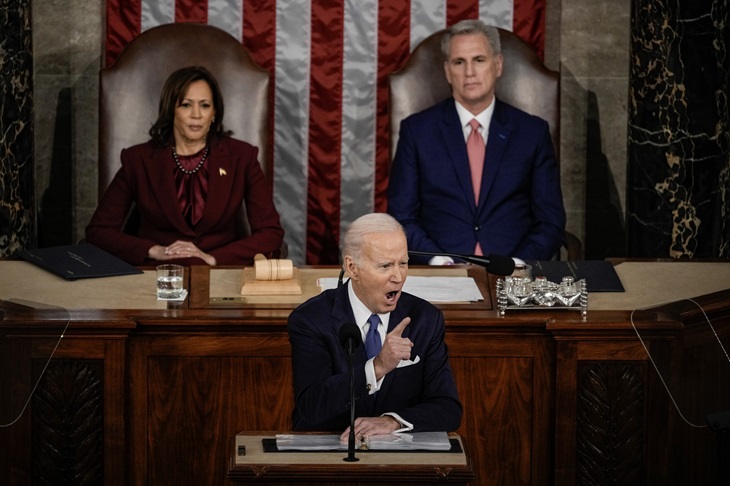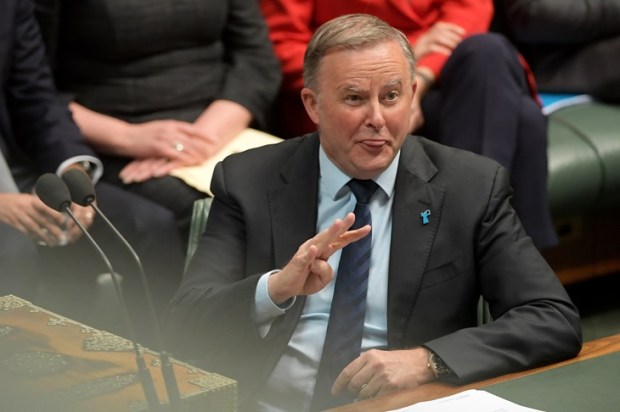What do Presidents Joe Biden and Lyndon B. Johnson have in common? It isn’t a trick question, and no, the answer I am looking for is not their shared penchant for public nudity.
Both made no secret of their lifelong desire to be President of the United States. Both yearned to be remembered as great liberal reformers in the mould of Franklin Delano Roosevelt. Both deputised to far more popular Presidents.
President Biden will be hoping the pair’s paths diverge in the coming months. In March 1968, Johnson told the nation that he would not contest the 1968 presidential election. Privately, he told anyone who would listen that his health would not permit him to serve another term as President.
While there was some truth to this – Johnson had suffered a near-fatal heart attack in 1955 and was descended from a long line of men who failed to cash out their three score years and ten – the decision was at least partially motivated by Johnson’s poor re-election prospects.
Biden faces a similar conundrum. A recent New York Times/Sienna poll shows Biden trailing Trump in the battleground states that will decide the election. The same poll shows that Trump still leads when Robert F. Kennedy, now an independent candidate, is thrown into the mix.
The most troubling part of the survey for Democrats is also the most obvious – Biden’s greatest weaknesses are the things he cannot change. 62 per cent of registered voters told pollsters that they thought Biden did not have the mental sharpness to be an effective President. 71 per cent of registered voters agreed or strongly agreed that Biden is too told to be an effective President.
These results have reinvigorated talk of Biden passing the torch. David Axelrod, who served as the chief strategist for both of Barack Obama’s presidential campaigns, called on Biden to reconsider his re-election campaign in light of the New York Times/Sienna poll.
‘If he continues to run, he will be the nominee of the Democratic Party,’ Axelrod wrote on X, the platform formerly known as Twitter. ‘What he needs to decide is whether that is wise; whether it’s in his best interest or the country’s?’
Axelrod’s analysis is correct. It is too late for a credible challenger to enter the Democratic primary. While there is plenty of behind-the-scenes jockeying to inherit the leadership of a post-Biden Democratic Party, the Democratic nomination will remain a one-horse race unless Biden ends his campaign.
One of the reasons the calls for Biden to step aside have been so muted for so long is that many Democrats consider his heir apparent, Vice President Kamala Harris, to be singularly unsuited for a successful tilt at the top job. Harris has proven herself to be the Lloyd’s of London of presidential politics – a walking insurance policy against impeachment and an open Democratic primary alike.
Expect the quiet calls for Biden to withdraw to grow, however. The chances of a second Trump presidency ticked up this week, as Senator Joe Manchin, a Blue Dog Democrat from deep-red West Virginia, announced he will not seek re-election to the Senate and hinted at an independent presidential campaign of his own. While a Manchin victory seems unlikely, his presence in the race could draw enough votes away from Biden to push Trump over the line.
Like Lyndon B. Johnson before him, Biden will be guided by political realities as he considers his future. One of those realities is this. It would be one thing for Biden to lose a presidential election. It would be another thing entirely – the ultimate symbol of buyer’s regret – for Biden’s presidency to be bookended by Donald Trump.
Got something to add? Join the discussion and comment below.
Get 10 issues for just $10
Subscribe to The Spectator Australia today for the next 10 magazine issues, plus full online access, for just $10.


























Comments
Don't miss out
Join the conversation with other Spectator Australia readers. Subscribe to leave a comment.
SUBSCRIBEAlready a subscriber? Log in